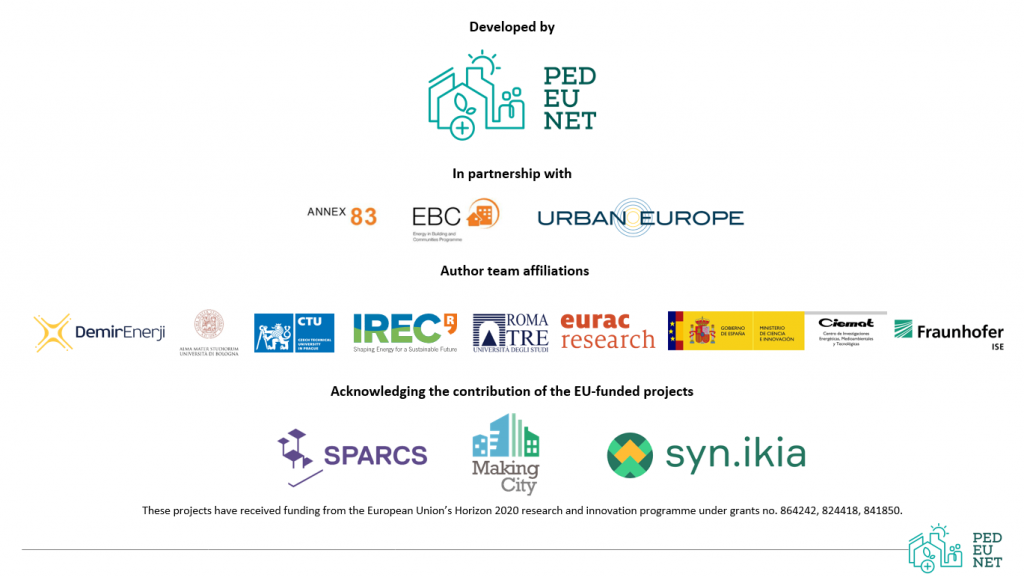| D1P001: Name of the project | |
| D1P001: Name of the project | LEGOFIT - Adaptable technological solutions based on early design actions for the construction and renovation of Energy Positive Homes |
| D1P002: Project assigned code | |
| D1P002: Project assigned code | 101104058 |
| D1P003: Start date | |
| D1P003: Start date | 05/23 |
| D1P004: End date | |
| D1P004: End date | 04/27 |
| D1P005: Ongoing project | |
| D1P005: Ongoing project | Yes |
| D1P006: Funding programme/financing model | |
| FP7/H2020/HEU/DUT | yes |
| FP7/H2020/HEU | HORIZON-CL5-2022-D4-01-02 |
| Interreg | no |
| National funding | no |
| Public-Private Partnership - please specify | no |
| Other | no |
| D1P007: Estimated project costs (Mill. €) | |
| D1P007: Estimated project costs (Mill. €) | 7.5 |
| D1P008: Description of project objectives/concepts | |
| D1P008: Description of project objectives/concepts | The LEGOFIT project aims to create, implement, and validate an advanced integrative approach to achieve EPH (Energy Positive House) using smart, scalable, and replicable solutions for building construction and renovation. The project focuses on: Developing an innovative holistic design platform that integrates passive and active technologies, enabling smart information exchange and interoperability of systems through Building Information Modelling (BIM). This platform will be accessible to both professionals and end-users. Combining active and passive strategies (e.g., building envelopes, HVAC systems, integrated solutions, including nature-based solutions) with smart management technologies (BAS, BMS) to achieve climate-neutral, high-energy building performance with maximum user flexibility. Exploring innovative methods to minimize environmental impacts through the smart use of solid and liquid residues generated during building life cycle stages. Promoting sustainable building stocks by ensuring compliance with economic, social, and environmental sustainability criteria, and enhancing the smart readiness of buildings. |
| D1P009: Description of project upscaling strategies/potential | |
| D1P009: Description of project upscaling strategies/potential | Based on past experience, tools and methods developed from research often struggle to survive in the marketplace due to knowledge gaps. To ensure the long-term viability of the LEGOFIT renewal process, a business plan focused on financial sustainability and broader impacts is presented to community stakeholders. Replication of innovative business models at all pilot sites is also supported through stakeholder collaboration. |
| D1P010: Number of PED case studies in the project | |
| D1P010: Number of PED case studies in the project | 5 |
| D1P011: Case Study | |
| D1P011: Case Study | |
| D1P012: Description of project expected impact | |
| D1P012: Description of project expected impact |
|
| D1P013: Standardization efforts | |
| D1P013: Standardization efforts | The key features of LEGOFIT offers reconfigurable designs and technical elements adaptable to user needs, considering building characteristics in five EU regions. The projects develop an algorithm suggesting optimal combinations of passive strategies, low-carbon materials, and renewable energy systems for energy efficiency throughout the building life cycle. The BIM ecosystem incorporates modules such as POESY, Digital Deconstruction Platform, and Digital Building Logbook to support the transformation of the building energy system. Improved communication among construction industry stakeholders will be facilitated by the BIM-based repository and the Digital Building Logbook, providing real-time information on building status. The POESY tool enables real-time analysis of user behaviour in buildings, aligning with well-being parameters set by users. LEGOFIT employs a multicriteria approach, considering technical, environmental, circular, financial and social aspects, streamlining decision-making and potentially reducing energy consumption, construction cost and times. The platform’s interoperability allows for an adaptable and customizable construction/renovation approach, catering to diverse stakeholder needs and boosting energy performance. |
| D1P014: Sources | |
| D1P014: Sources | |
| D1P015: Can you specify a suitable contact person regarding the load-management approach within your PED project? | |
| Name | Beril Alpagut |
| balpagut@demirenerji.com | |
| D1P016: Would you be willing to share data from your PED project for research purposes? | |
| D1P016: Would you be willing to share data from your PED project for research purposes? | Yes |

Authors (framework concept)
Beril Alpagut (Demir Energy); Giulia Turci (University of Bologna); Michal Kuzmic (Czech Technical University in Prague); Paolo Civiero (Università Roma Tre); Serena Pagliulia (University of Bologna); Oscar Seco (CIEMAT); Silvia Soutullo (CIEMAT); Daniele Vettorato (EURAC Research, IEA Annex 83); Bailador Ferreras M. Almudena (CIEMAT); Vicky Albert-Seifried (FHG ISE)
Contributors (to the content)
Laura Aelenei (LNEG), Nienke Maas (TNO), Savis Gohari (OsloMet), Andras Reith (ABUD), Ghazal Etminan (AIT), Maria-Beatrice Andreucci (Universita Sapienza), Francesco Reda (VTT, IEA Annex 83), Mari Hukkalainen (VTT), Judith-Borsboom (Locality), Gilda Massa (ENEA), Jelena Ziemele (University of Latvia), Nikola Pokorny (CVUT), Sergio Diaz de Garayo Balsategui (CENER, IEA Annex 83), Matthias Haase (ZHAW, IEA Annex 83), Christoph Gollner (FFG, JPI UE), Silvia Bossi (ENEA, JPI UE), Christian Winzer (Zurich University of Applied Science), George Martinopoulos (Centre for Research and Technology Hellas), Maria Nuria Sánchez (CIEMAT), Angelina Tomova (Energy Agency of Plovdiv), Oya Tabanoglu (Demir Enerji), Jelena Brajković (University of Belgrade), Juveria Shah (Dalarna University), Michela Pirro (ENEA), Francesca Sabatini (University of Bologna)
Implemented by
Boutik.pt: Filipe Martins, Jamal Khan
Marek Suchánek (Czech Technical University in Prague)